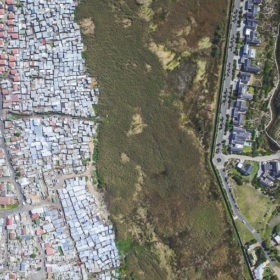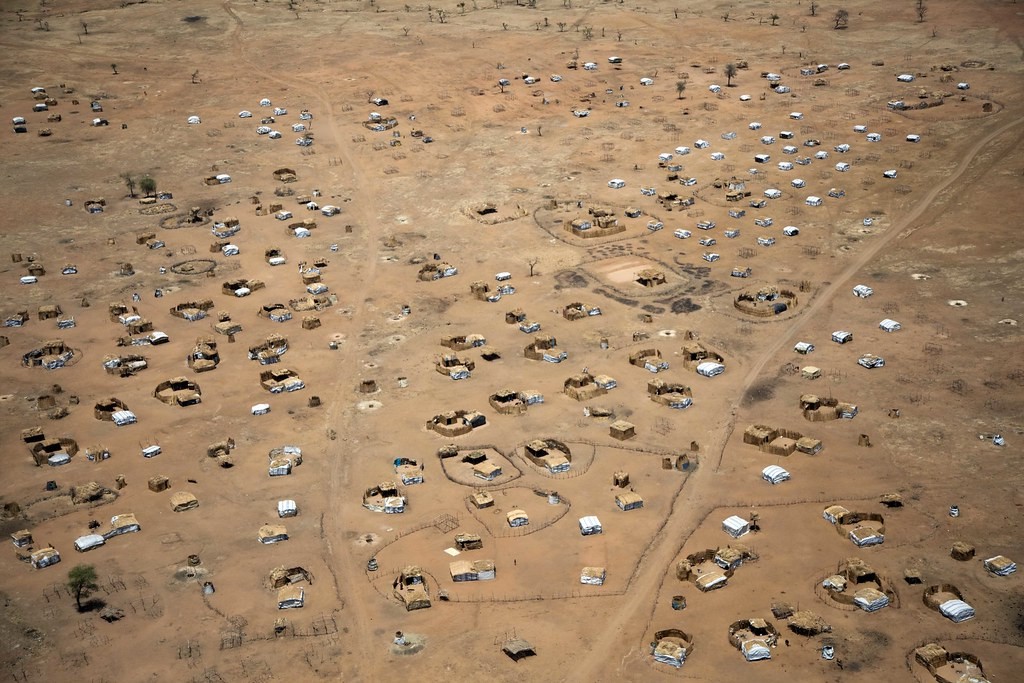
The intensity and frequency of natural hazards are on the rise. Refugee settlements face a particular risk from such disruptive events due to their precarious built environment and socio-economic situation. The SPUR and PLUS research groups at ETH Zürich, in collaboration with UNHCR and the Swiss Development Cooperation (SDC), thus seek to support UNHCR field staff in mapping flood risks and developing risk mitigation strategies: A three-part toolbox for safer and more sustainable refugee settlements.
As of mid-2022, there are an estimated 103 million forcibly displaced people worldwide. This number is expected to rise due to the changing climate, with refugee camps likely to expand. Although they are still the standard solution in the humanitarian context, refugee camps are perceived as the least desirable form of humanitarian housing.
Climate Change Increases Natural Hazards
At the same time, climate change increases the frequency and intensity of natural hazards, putting refugee settlements at particular risk. That is due to their precarious socio-spatial situation, often featuring remote locations and temporally built structures fueling the socio-political vulnerabilities of the displaced residents.
Managing the risk from natural hazards is, therefore, essential to ensure sustainable and safe settlements. Integrated risk management focuses on preparing for, responding to, and recovering from natural hazards. It is based on participatory, multi-scale and cross-sectoral, iterative and long-term processes, among other aspects. This approach seems to be a hard fit with refugee camps that are often subject to short-term planning, isolated housing solutions, and fragmented governance structures.
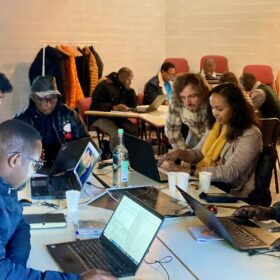
Providing a Toolbox
In the face of these challenges, the Humanitarian Planning Hub at SPUR and the Chair of Planning Landscape and Urban Systems (PLUS) at ETH Zürich collaborate with UNHCR and the Swiss Development Cooperation (SDC) through the Geneva Technical Hub. This collaboration aims at supporting UNHCR field officers in identifying and mapping flood risks and developing risk mitigation strategies for refugee camps. To do so, the project provides an innovative toolbox comprising three integrative parts:
- A participatory risk mapping methodology, valuing and using local knowledge and fostering cooperation and synergies with local actors, plans, and knowledge.
- An easy-to-use GIS tool to create flood risk maps next to operational and practical risk mitigation strategies for refugee settlements.
- A catalogue of risk mitigation measures with a comprehensive overview of flood risk mitigation measures adequate for refugee settlements.
During a workshop in February 2023, UNHCR field staff from across the globe were trained using the three-part toolbox, with in-field testing being underway in several refugee settlements. Through this reciprocal learning process, the team hopes to contribute to more sustainable and safer humanitarian settlements worldwide.
For more information, please visit the SPUR website.
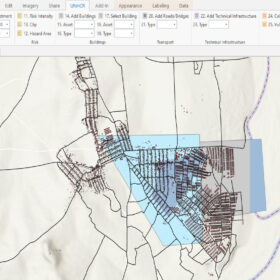
Research Team
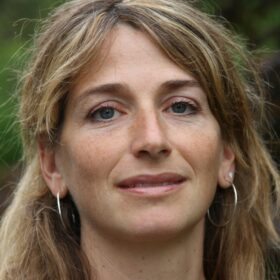 Prof. Dr. Adrienne Grêt-Regamey is an environmental scientist and landscape planner. She has been Professor at the Chair of Planning Landscape and Urban Systems (PLUS) at the Institute for Spatial and Landscape Development (IRL), ETH Zürich since 2008. Currently, her research focuses on understanding how the interactions and/or actions of humans shape landscapes at various temporal and spatial scales, using different land-use decision models in forecasting and backcasting modes. T: +41 44 633 46 88
Prof. Dr. Adrienne Grêt-Regamey is an environmental scientist and landscape planner. She has been Professor at the Chair of Planning Landscape and Urban Systems (PLUS) at the Institute for Spatial and Landscape Development (IRL), ETH Zürich since 2008. Currently, her research focuses on understanding how the interactions and/or actions of humans shape landscapes at various temporal and spatial scales, using different land-use decision models in forecasting and backcasting modes. T: +41 44 633 46 88
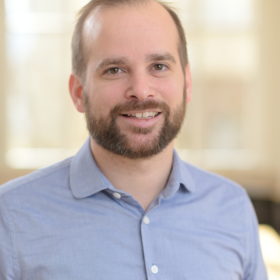 Prof. Dr. David Kaufmann is the Assistant Professor of Spatial Development and Urban Policy (SPUR) at ETH Zürich. He serves as the Deputy Director of the Institute for Spatial and Landscape Development (IRL) and as the Deputy Director of the Network City and Landscape (NSL) (both at ETH Zürich). He is an urban studies scholar with an interest in planning, policy, and migration studies. His research motivation is to understand and contribute to sustainable, democratic, and just urban development through policy-making and planning. T: +41 44 633 94 84
Prof. Dr. David Kaufmann is the Assistant Professor of Spatial Development and Urban Policy (SPUR) at ETH Zürich. He serves as the Deputy Director of the Institute for Spatial and Landscape Development (IRL) and as the Deputy Director of the Network City and Landscape (NSL) (both at ETH Zürich). He is an urban studies scholar with an interest in planning, policy, and migration studies. His research motivation is to understand and contribute to sustainable, democratic, and just urban development through policy-making and planning. T: +41 44 633 94 84
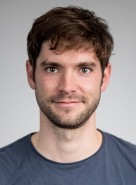 Dr. David Kostenwein is an urban researcher with a PhD from the Institute of Science, Technology and Policy (ISTP) at ETH Zürich. At SPUR, he coordinates the Humanitarian Planning Hub, working closely with practitioners and INGOs and creating policy relevant research in the field of sustainable emergency housing and planning.
Dr. David Kostenwein is an urban researcher with a PhD from the Institute of Science, Technology and Policy (ISTP) at ETH Zürich. At SPUR, he coordinates the Humanitarian Planning Hub, working closely with practitioners and INGOs and creating policy relevant research in the field of sustainable emergency housing and planning.
T: +41 44 633 24 44
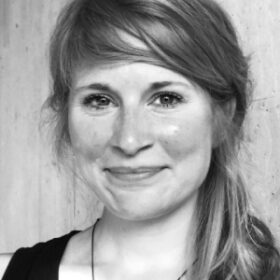 Bruna Rohling is a doctoral candidate at the SPUR research group and its Humanitarian Planning Hub, where she works on natural hazard management in humanitarian contexts. Trained as an urban planner, she has developed a particular interest in planning at the interface of migration, ecology, climate justice, and participatory GIS.
Bruna Rohling is a doctoral candidate at the SPUR research group and its Humanitarian Planning Hub, where she works on natural hazard management in humanitarian contexts. Trained as an urban planner, she has developed a particular interest in planning at the interface of migration, ecology, climate justice, and participatory GIS.
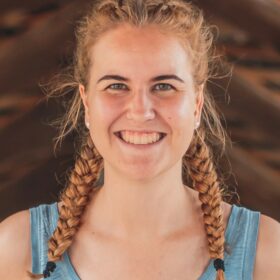 Laura Schalbetter is a doctoral candidate at the PLUS research group, working on the Project REGaitVR, exploring the restorative effects of landscapes in gait therapies. With her background in geomatics, her interests lie in GIS, landscape planning, and software development.
Laura Schalbetter is a doctoral candidate at the PLUS research group, working on the Project REGaitVR, exploring the restorative effects of landscapes in gait therapies. With her background in geomatics, her interests lie in GIS, landscape planning, and software development.
